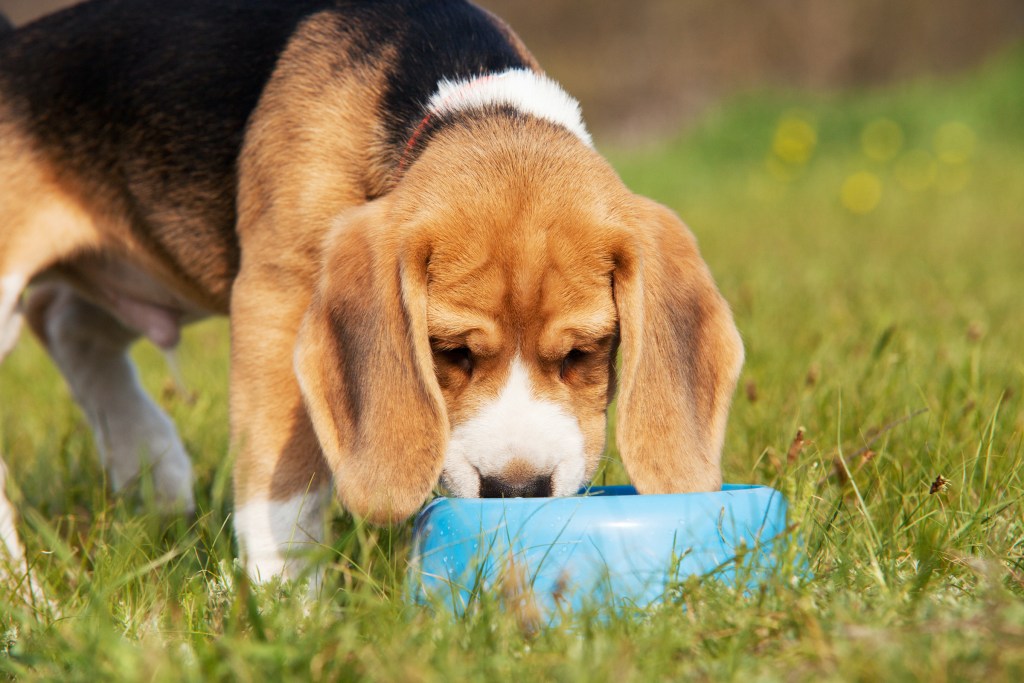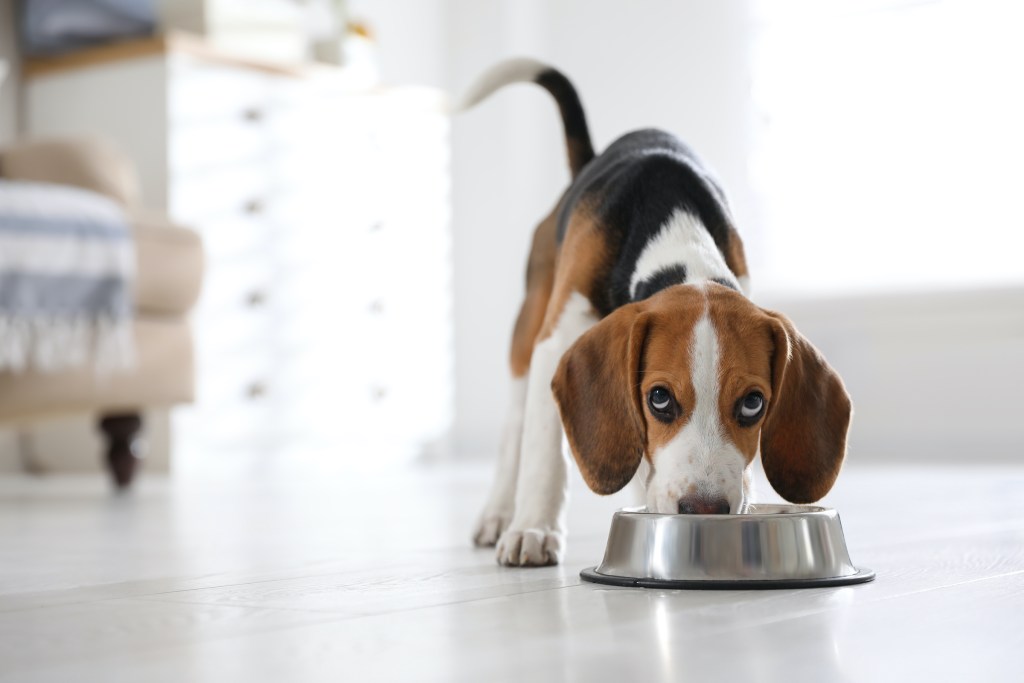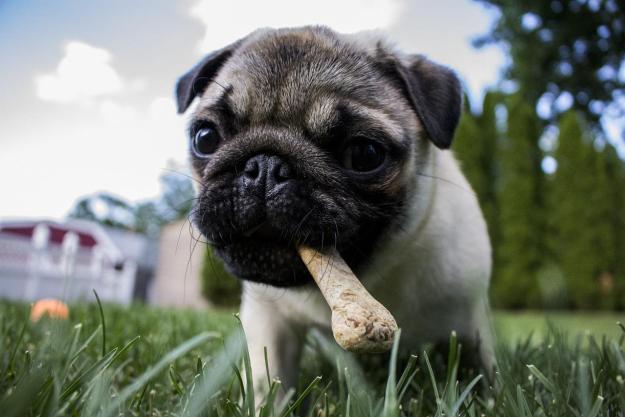Spend some time with a hungry beagle, and you’re bound to notice the breed’s affinity for food. Whether it’s mealtime, treat time, or stealing something off the floor time, this vibrant breed and its powerful nose will be first to the scene of the crime. You can imagine that a food-motivated breed wouldn’t be picky when it comes to meals, but some kibbles and formulas are better suited for your beagle than others.
Here’s where that leaves us: What’s the best food for beagles, and what should they avoid?
We’ve scoured canine resources for the best answers in the hopes to get you one step closer to your dog’s new favorite food. True, it may take a little trial and error before everyone is happy, but there’s no time like the present to get started.
What should I feed my beagle?
Look for weight-friendly formulas
Because this breed is prone to obesity, some regular kibbles may be too rich and calorie-dense for your pup’s diet. Luckily, many veterinarian-approved dry foods come in weight-friendly formulas that can be just as delicious. Many of these recipes, like Royal Canin’s Veterinary Diet Hydrolyzed Protein Moderate Calorie Dry Dog Food, require a vet’s approval in order to purchase, so don’t wait to talk to your dog’s doctor about changing up their diet.
Make sure you account for your beagle’s age
It’s also important to feed your pup food that’s meant for their specific life stage. Food for puppies, for example, will differ from that of adult dogs. Even elderly pets have their own formulas! This will help every dog get the nutrients necessary to support healthy bodies at any age.
Consider high-protein options
Since beagles love to eat, you can try investing in a high-protein kibble that will keep them full for longer. This is a great alternative to adding a second helping to their dinner, as that can lead to obesity and other health concerns. Even dogs need to practice moderation in their diets!

What should you not feed a beagle?
While shopping for your buddy’s next food, check the details more closely than you’re used to. The Association of American Feed Control Officials (AAFCO) has compiled a set of standards and regulations to ensure that their endorsed products provide a nutritionally complete diet for animals, so you can look for this seal of nutritional adequacy on many of your pet’s favorite products. If it doesn’t have the AAFCO seal, don’t buy it!
Some dog experts believe that beagles don’t benefit from wet dog food as much as dry kibble, but every pup will have unique needs. Canned dog food can be a great tool for pups who don’t feel interested in their old food, or who need a little push to eat. For beagles, this should almost never be the case. This food-loving breed is not known to be picky, notes the American Kennel Club, so you should have no trouble with kibble.
When it comes to feeding your beagle, the how can be just as important as the what. Regardless of what you give your pup, giving it to him in set portions during mealtimes will help him to snack in moderation. In other words, don’t think about free-feeding a food-motivated breed like the beagle — your pup will eat too much, too fast! You can always try a slow feeding bowl or kibble-releasing dog toy to help your buddy eat slower, too. Whatever works!

What human foods can beagles eat?
To keep your best buddy happy and healthy, many canine professionals suggest not feeding them any table scraps at all. Even though many ingredients in human food are the same as in dog food, the way they’re prepared for people can cause digestive upset in dogs. Other ingredients are downright toxic, so it’s safer to avoid people’s food altogether.
If you choose, you can safely prepare basic human foods like chicken, rice, or turkey for your beagle. Make sure not to include any herbs or spices if you’re cooking for your dog, but when it comes to choosing a kibble, feel free to get experimental! When in doubt, you can always look for dog food with a flavor your fur baby loves — something like American Journey’s lamb, venison, and beef formula.
What human foods should beagles avoid?
If you do choose to share some of your meals with your beagle, make sure not to pass along any of these foods that are poisonous to dogs:
- chocolate
- caffeine
- alcohol
- grapes and raisins
- macadamia nuts and almonds
- onions and garlic
- artificial sweeteners, especially xylitol
Many other human foods, including avocado and dairy products, can cause significant digestive trouble if too much is eaten. The same goes for pitted fruits like persimmons and peaches, as the flesh of the fruit is safe but the pit — which dogs don’t know to avoid — can contain toxins or cause intestinal blockage (via Poonav Sachdev, MD).
Now that you’re equipped with everything you need to know about the best food for beagles, you can officially start your search. We know there are lots of kibble options to choose from, but you’ll get there one meal at a time. When in doubt, don’t be afraid to ask your veterinarian for advice as well.
Editors' Recommendations
- The Best Dry Dog Food of 2023 for a Balanced Diet
- Looking for signs your dog has ticks? These telltale symptoms mean you have a flea or tick problem
- Is your dog barking nonstop? Here’s how to get your noisy pup under control
- Are Starbucks Puppuccinos bad for dogs? Here’s what veterinarians have to say
- Is your dog’s breathing problems old age or something else? What to know




